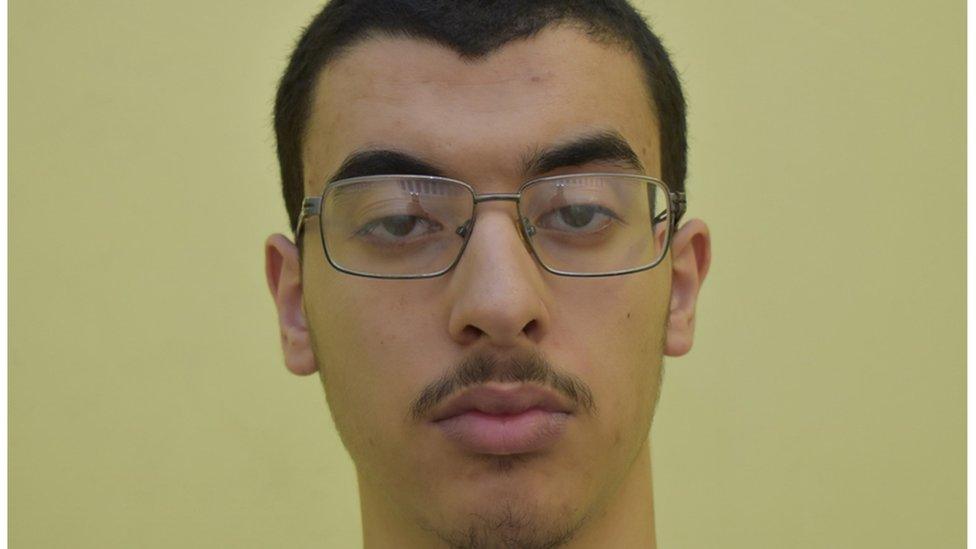Manchester Arena inquiry: Salman Abedi 'trained with Islamist militia'
- Published

Top row (left to right): Alison Howe, Martyn Hett, Lisa Lees, Courtney Boyle, Eilidh MacLeod, Elaine McIver, Georgina Callander, Jane Tweddle - Middle row (left to right): John Atkinson, Kelly Brewster, Liam Curry, Chloe Rutherford, Marcin Klis, Angelika Klis, Megan Hurley, Michelle Kiss - Bottom row (left to right): Nell Jones, Olivia Campbell-Hardy, Philip Tron, Saffie-Rose Roussos, Sorrell Leczkowski, Wendy Fawell
Manchester Arena bomber Salman Abedi trained or fought with an Islamist militia in Libya, an inquiry has heard.
His cousin Abderahman Forjani told police Abedi travelled to Libya during its 2011 revolution and "obtained a job locating Gaddafi supporters".
Abedi had been involved in "raids during that period" and images showed him with weapons, rocket launchers and military vehicles, a court heard.
Twenty-two people were killed in the bombing at the arena in May 2017.
The inquiry into the attack was told police concluded Abedi had been involved with the February 17th Martyrs Brigade.
The information was revealed during the evidence of Det Ch Supt Simon Barraclough, from Greater Manchester Police, who was the senior investigating officer on the case.
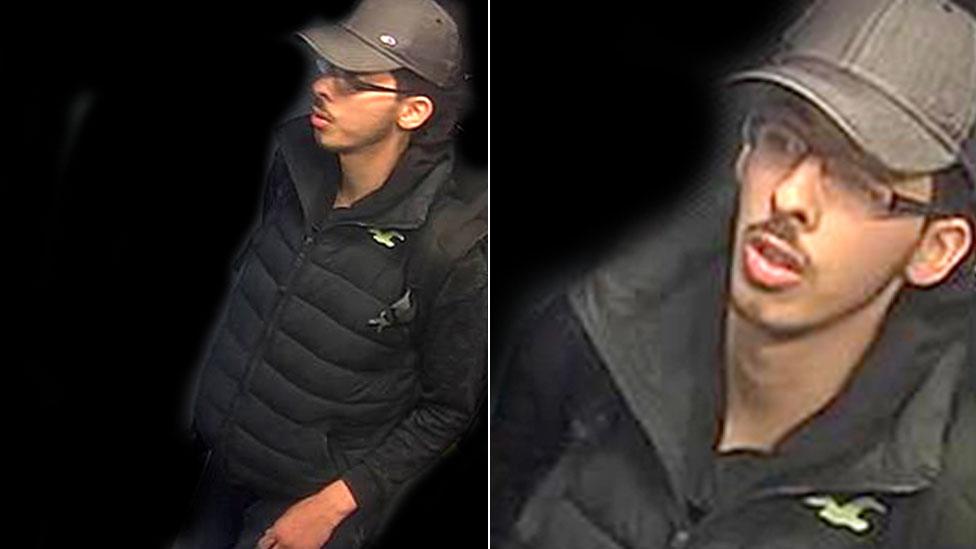
Salman Abedi pictured on CCTV shortly before the bombing
The inquiry heard that a UK counter-terror investigation into a woman associated with the February 17th Martyrs Brigade had - in January 2017 - seized an image of a person brandishing a rifle in Libya that bears a "strong resemblance" to Salman Abedi, but the likeness was only established in 2018.
The court was told three of the woman's children have travelled to Syria and were associated with al-Qaeda aligned groups, with one of them dying there while fighting.
When officers searched the Abedi family home after the arena attack, a hard drive was found showing both Salman and Hashem Abedi in military uniform in Libya in 2011.
In his statement, Det Ch Supt Barraclough concluded it was not unreasonable to suggest that Salman Abedi had fought with the February 17th Martyrs Brigade, attended a training camp, or both.
But he confirmed that Abedi, who had been an MI5 subject of interest, was never stopped when travelling in and out of the UK between 2010 and 2017.
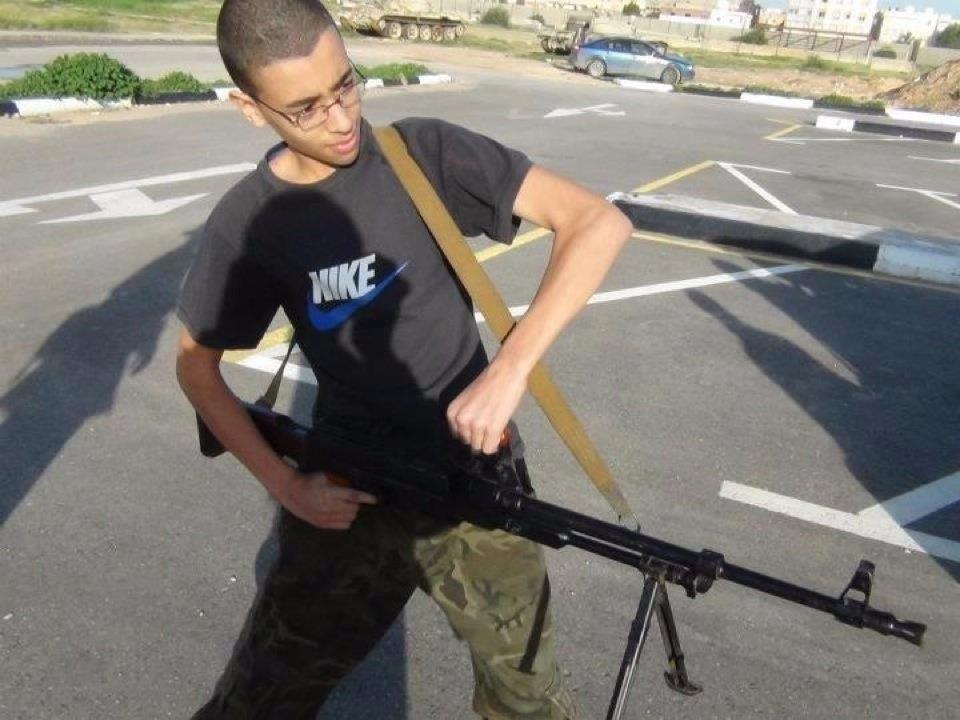
An image of a young Hashem Abedi from his father's Facebook page
Paul Greaney QC, counsel to the inquiry, said that when the home of Salman Abedi's eldest brother Ismail was searched after the arena blast, a device was found containing a "number of images that may be considered [supportive] of an extremist mindset".
The inquiry, at Manchester Magistrates' Court, heard these images showed "burnt bodies and one depicting an Isis flag with 'I pledge allegiance'", as well as pictures of Salman Abedi with weapons and videos of lectures by al-Qaeda ideologue Anwar al-Awlaki.
In his statement, Det Ch Supt Barraclough said "in some respects it also appears that Ismail Abedi was sympathetic to the ideals of Isis".
The inquiry also heard the father of the Abedi brothers was thought to have lied during his asylum application, but later received British citizenship.
Ramadan Abedi arrived in the UK with his wife Samia in July 1993, applying for asylum five days later.
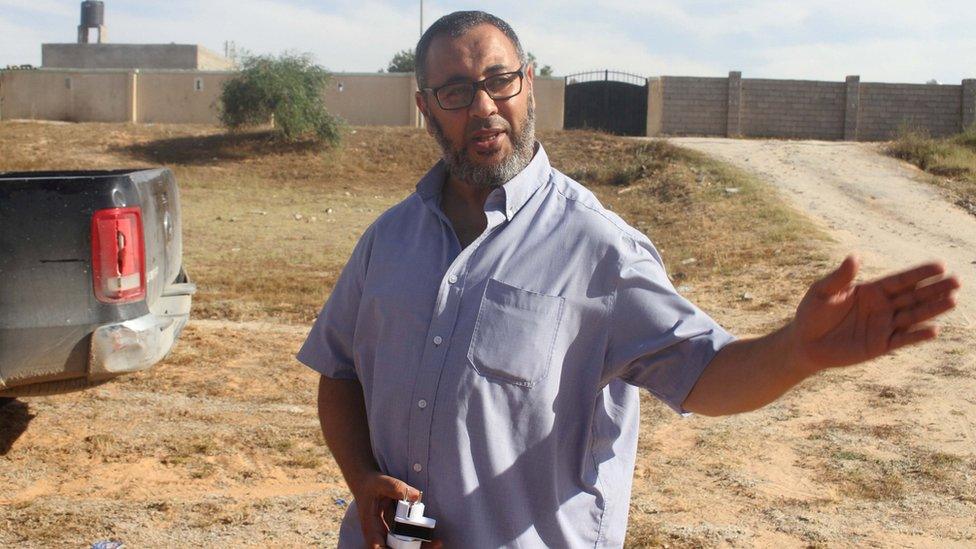
Ramadan Abedi is the father of brothers Salman and Hashem
The court heard it had initially been refused, with Mr Greaney saying this "had been based on the assessment of the Home Office that Ramadan's claims regarding employment in the security services in Libya were false".
He added that further considerations were "that the claimed nature of his departure from Libya was not credible… That there were, it was thought, numerous inconsistencies in his application… That he had produced a forged medical letter in relation to his wife.. and that he had failed to claim asylum in Tunisia which was one of his points on his journey to the United Kingdom".
But the inquiry heard Ramadan Abedi persisted with appeals and was eventually granted refugee status in 1997.
He was then refused British citizenship in September 2004 on "character grounds" as a result of previous convictions, before eventually receiving it three years later.
The inquiry heard he was stopped by police when travelling to Libya in 2011 and he claimed he was involved in aid convoys giving medical aid to Libyan rebels, and denied being involved in military activity.
But the hearing was told that his sister later told detectives that he had gone to Libya to fight and had received a shrapnel wound while doing so.
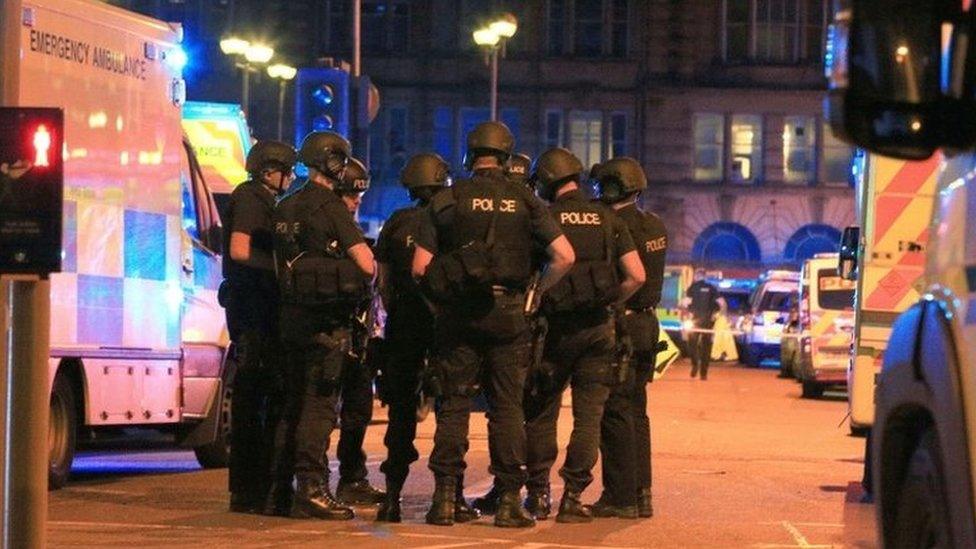
Twenty-two people were killed and hundreds more injured in the explosion
The inquiry also heard evidence about the more than 20 people arrested during the police investigation.
Det Ch Supt Barraclough said Ismail Abedi had initially answered police questions, but had subsequently given mostly no comment answers during the majority of his 25 interviews before being released in June 2017.
Mr Greaney asked if a conclusion had been "reached that there is no evidence meeting the charging standards for any offence relating to him being involved in the commission, preparation or instigation of the attack?".
The officer replied "that was certainly the assessment, but you must understand that the investigation continues in relation to this and there will be further attempts by the investigation to speak to Ismail Abedi in due course".
The inquiry was told the only person involved in chemical purchases who has not been interviewed is Mohamed Soliman.
Mr Soliman, who bought sulphuric acid on Amazon, is known to have travelled to Libya in April 2017 prior to the attack.
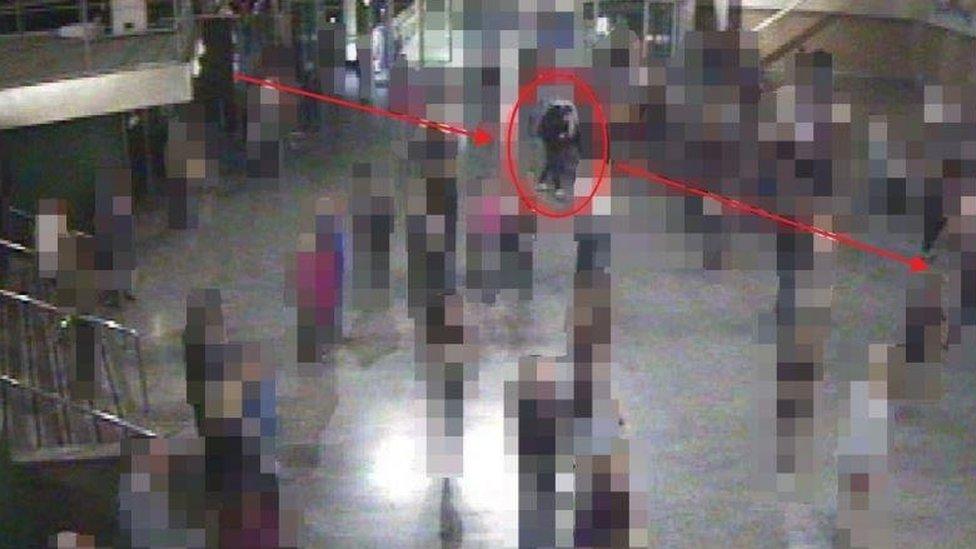
Salman Abedi in the foyer of the Manchester Arena, seconds before he blew himself up
Mr Greaney said between late January and early April 2017, there were 461 separate contacts between Mr Soliman's phone and mobiles attributed to Salman and Hashem Abedi, comprising both calls and messages.
Det Ch Supt Barraclough said the evidence would "point to him being complicit in and having knowledge of the Manchester Arena bombing", but that his status cannot be finalised until he is interviewed.
The inquiry heard one individual of interest to investigators, a Devon-based cleric called Mansoor Al-Anezi, was dead.
Al-Anezi was the last person to have contact with a man who tried to be a suicide bomber in the South West, which was a reference to an attempted attack in Exeter in 2008. , external, the hearing was told.
He died in January 2017 and was visited in hospital by Salman Abedi prior to his death, with both Salman and Hashem attending his funeral in Manchester.
Det Ch Supt Barraclough said the link to Al-Anezi was "clearly a connection of significance".
The inquiry continues.

Why not follow BBC North West on Facebook, external, Twitter, external and Instagram, external? You can also send story ideas to northwest.newsonline@bbc.co.uk, external
Related topics
- Published7 December 2020

- Published3 December 2020
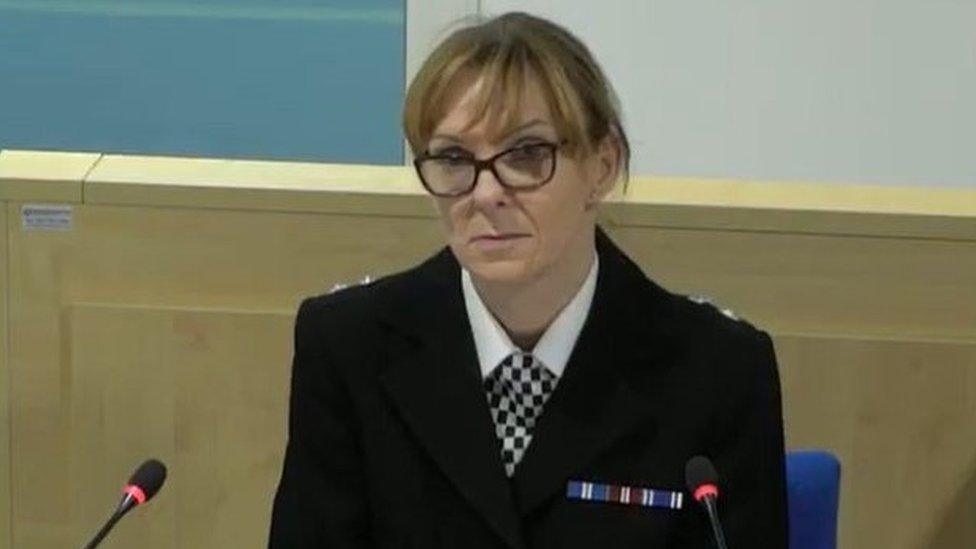
- Published2 December 2020
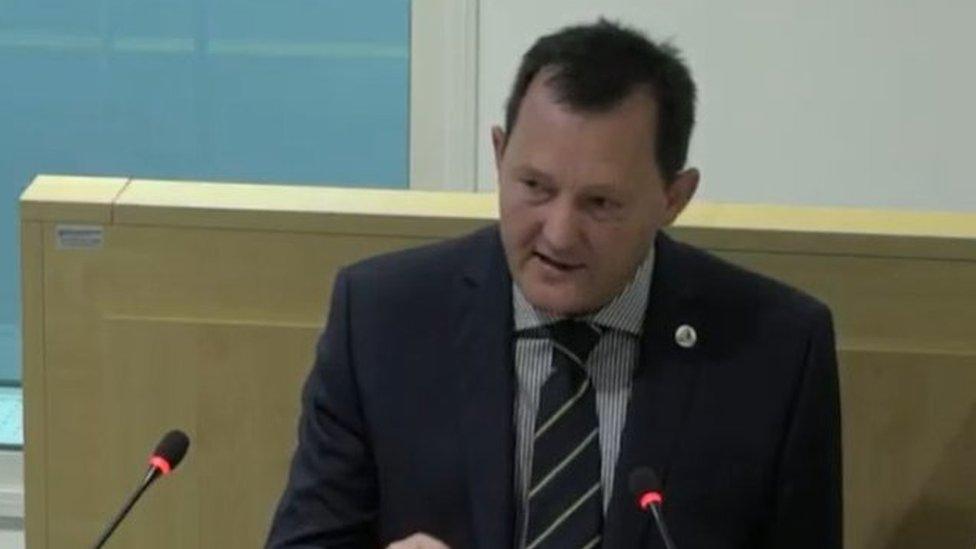
- Published1 December 2020

- Published30 November 2020
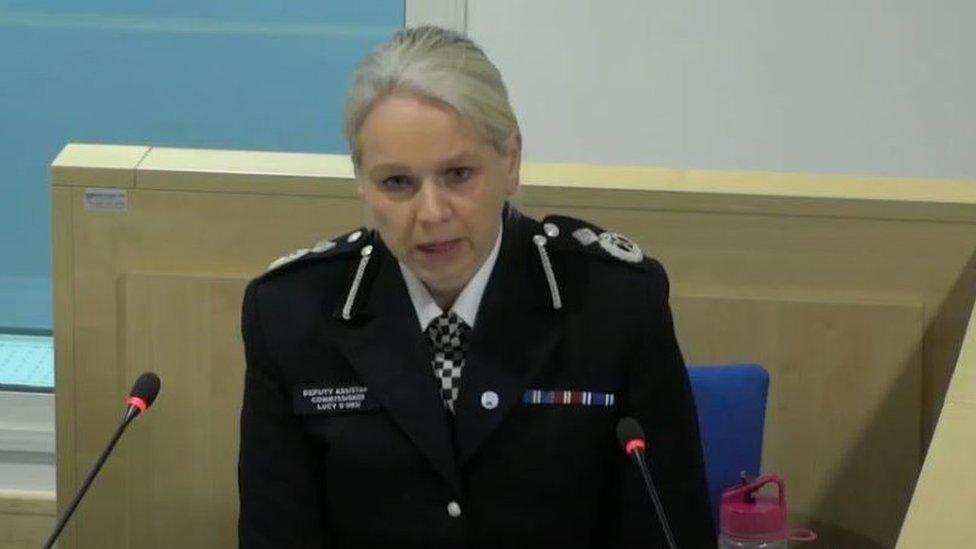
- Published17 November 2020
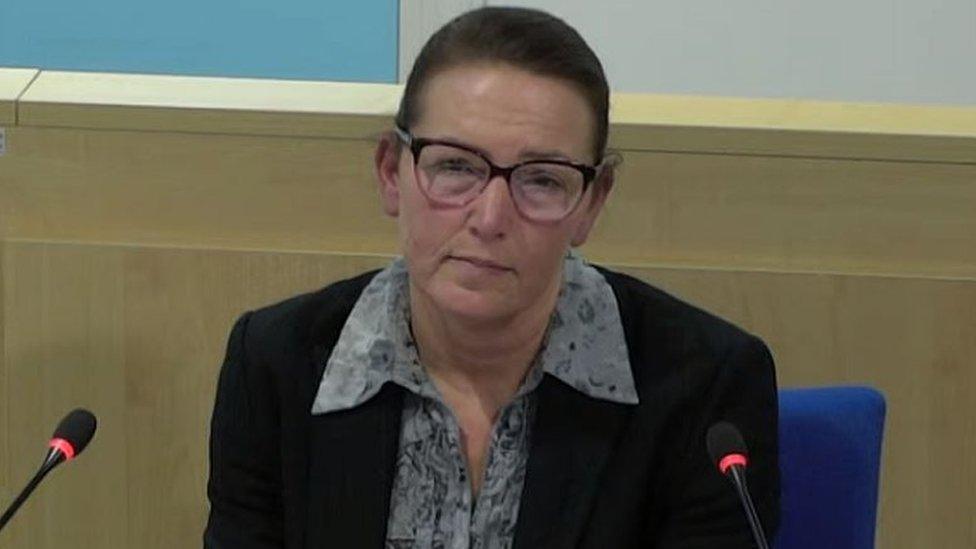
- Published20 August 2020
